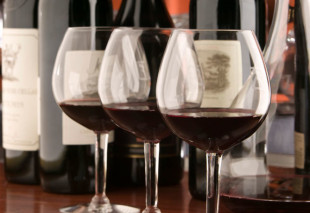Wine as an alternative asset class
Wine as an alternative asset class
Tempting! But the answer is NO.
Yes, fine wine from the top chateaus and producers is in finite supply. On most properties, the number of bottles produced is documented, and every time a bottle is opened (or dropped) the world supply declines. In the UK, wine receives faborable tax treatment as a “wasting asset” because it doesn’t last forever. So the British used to buy two cases of wine, store them until maturity, sell one back to the wine merchant for twice the price, recover their original investment and drink the second for free.
We agree, it’s a compelling story.
However:
- Only the best of the best is “investment grade.” Primarily these are Bordeaux, a few Burgundies, Port, and a smattering from other places.
- Wine changes hands in a thinly traded market. There’s no NYSE or NASDAQ for wine. Although you may see prices on website, in stores, or at auction, there’s no simultaneous price bid. You don’t know the spread.
- Although you may think the auction price is a midway meeting point, different auction houses in different cities at different times yield different results.
- When wine is purchased as futures, you pay 100% up front with the expectation of delivery 18 to 24 months later. Until the wine is in your hands, you are a creditor of the wine merchant. You hope they’re in business when your wine arrives.
So here are the main reasons why your favorite beverage shouldn’t be a part of your retirement portfolio:
- Trnasaction costs—Buying at auction might involves a 15% buyer’s premium and a 15% seller’s premium. Add sales tax. If you take delivery, add shipping costs; substitute storage costs if you don’t. You may need a 40-50% rise in price just to break even.
- Counterfeits—If it’s good enough to collect, it’s good enough to copy. Because of recent scandals and lawsuits, some auction houses won’t accept certain older wines for consignment even if they sold them to you in the first place. It’s said that more 1982 Chateau Petrus is sold annually in Las Vegas than was produced in 1982 at Chateau Petrus! There must be a thriving trade in empty wine bottles from famous properties…
- Provenenance—This is the auction term for unbroken chain of ownership. If you collect fine wine and plan to sell, you may be required to show records following the wine from initial purchase to the present date.
- Condition—Le’s assume you own a fine Premier Cur Bordeau like Chateau Mouton Rothschild. To achieve the best price, the wine needs to be perfect. The means no damage or staining to the label, no evidence of leakage on the foil capsule and, most importantly, a high fill level. The auction world has a standardized set of measurements for the distance between the bottom of the cork and the top of the liquid in the bottle. Wines sell better in ubroken cases of 12 bottles or OWC (original wooden case). Each item listed can reduce the expected price.
- The Best Years—A handful of wines are considered “blue chip.” However, they must be from the best or extremely good years. Lesser years are in less demand by collectors.
- You Can’t Sell It—Unlike most collectables, wine can’t be sold legally between two individuals. The old joke goes, “I have 100 bottles of wine and want to sell them. What do you think I’ll get?” is followed by the answer, “About 20 years.”
- Private Transactions—Published auction prices don’t tell the whole story. If a tycoon with a large collection gets into financial trouble, it’s unlikely he or she will flood a thinly traded market with inventory and push prices down. They may sell privately through a licensed intermediary. That price may be a lot lower—and never recorded.
- Liquidity—The equity markets have many advantages, including speed of settlement. Sell your stock today and you have a check in hand three business days later. Wine is consigned to auction houses and listed in specialty auctions. This takes time.
So…cheers! We don’t recommend you save it…savor it instead!
Most
Recent
Recent
Most
Popular
Popular





















